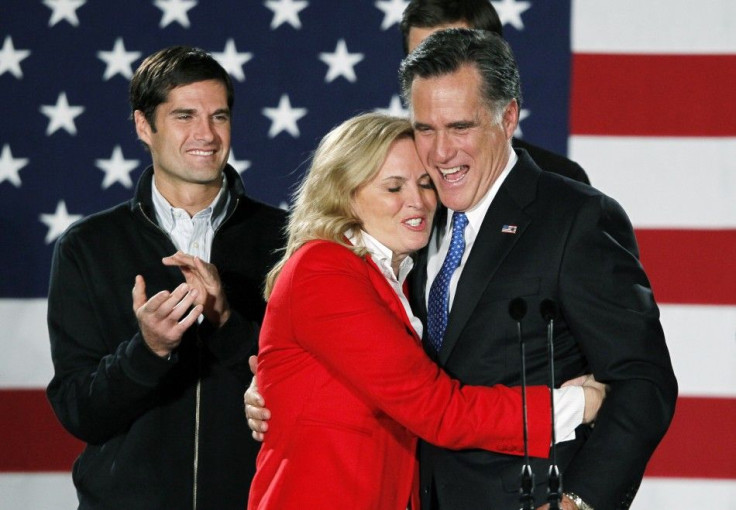Iowa Caucus Results: Historically Uneven Record of Predicting Nominee

Now that the results of the Iowa caucuses are tallied, the barrage of dissection and prognostication can begin: does this solidify Mitt Romney's status as a frontrunner, or does his failure to score a decisive victory portend trouble? Does Rick Santorum have the infrastructure and the supporters to build on his virtual tie? Will Ron Paul continue to be a disruptive force?
Underlying all this is the question of whether the Iowa caucuses are in fact reliable indicators of who will emerge as the eventual nominee. A look back at the last few Iowa caucuses shows that while an Iowa victory can rally support for a candidate or help shape the media narrative, it is by no means definitive.
In 2008, former Arkansas governor Mike Huckabee won Iowa by a resounding nine point margin over Romney, the second place finisher. Propelled to victory in large part by Iowa's large bloc of evangelical voters, Huckabee solidified his status as a top contender. But Senator John McCain (R-Ariz), the eventual nominee, had largely forsaken Iowa and chose instead to double down on New Hampshire, which he won en route to the nomination.
Iowa: Important But Not Essential
Those results underscore the fact that despite its first in the nation status, Iowa is not essential. Romney in 2012, like McCain in 2008 and 2000, has largely focused on New Hampshire, bolstering his Iowa presence only when the field there appeared unsettled shortly before the caucuses. Former Utah governor Jon Huntsman has played that strategy to the hilt, and despite a dismal showing in Iowa his campaign still believes a solid finish in New Hampshire could revive his moribund campaign.
For the Democratic candidates, the 2008 Iowa caucuses signaled the start of a long, unpredictable slog. President Barack Obama's upset win demonstrated Hilary Clinton's vulnerability and suggested that the ascendant young senator from Illinois had the capacity to challenge Clinton's formidable campaign -- news reports said donors were panicking and described the campaign as deeply shaken. Clinton subsequently registered a surprising three-point victory in New Hampshire, affirming that the contest would stretch across months.
In 2004, the Iowa caucus results helped to reshape basic assumptions about the dynamics of the Democratic contest. Vermont governor Howard Dean and Rep. Dick Gephardt (D-MO) had been polling as the leading candidates to take Iowa, but late surges by Sen. John Kerry (D-MA) and Sen. John Edwards (D-NC) allowed them to take first and second place, respectively, siphoning off Dean's momentum. Kerry defeated Dean again in New Hampshire, and the Vermont governor had soon exited the race with a primal scream as his epitaph.
In 2000, Iowa did little more than affirm Al Gore's standing as the presumptive frontrunner over his rival, Sen. Bill Bradley (D-NJ). Gore captured the state by a wide margin and went on to a clean sweep of all 50 states and Washington, D.C. On the Republican side, McCain skipped the Iowa caucuses, conceding the state to George W. Bush, in order to put in the time necessary to register a landslide win in New Hampshire. McCain only won a handful of other states, unable to endure a barrage of negative attack ads.
Clearly, no two Iowa caucuses are alike. But while history suggests that a strong Iowa showing allows a candidate to remain in the race, it's also possible to lose Iowa and win the nomination. Romney appears to be in decent shape, but the road to the White House remains tortuous and long.
--
© Copyright IBTimes 2024. All rights reserved.





















